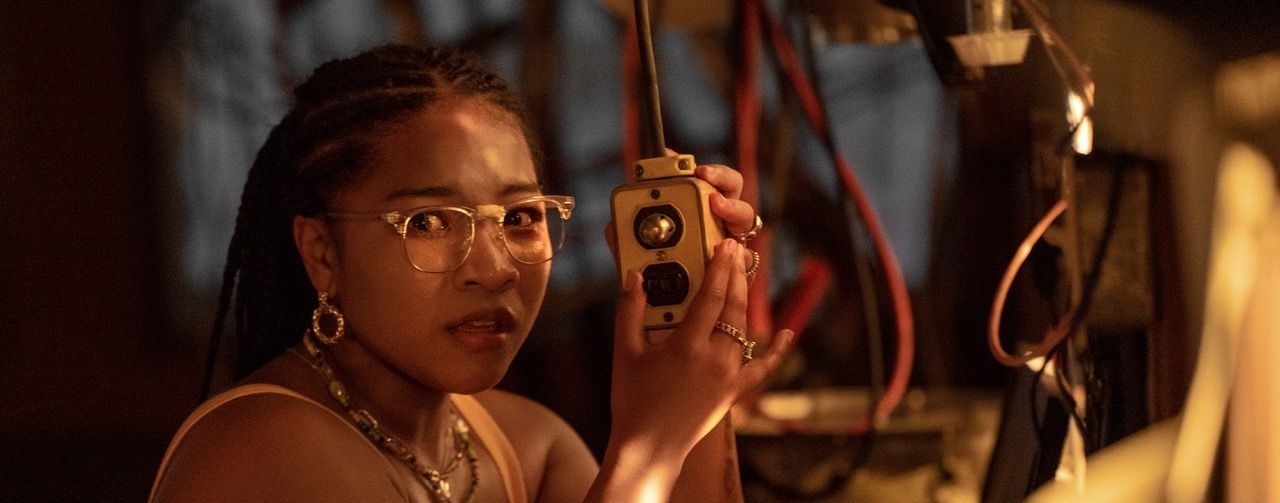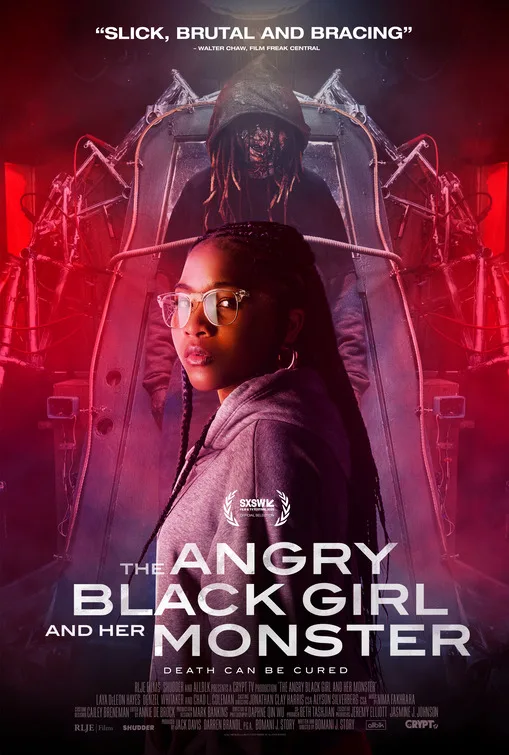To be Black is to acknowledge the intrinsic impact that violence has, and continues to have, on our culture and history. To be Black is to see your identity relentlessly caricatured for propaganda but to claim your power in the face of deniers. Yet the cycles of mourning forced upon Black communities yield anger, exhaustion, and the question of how and where to channel it. Writer/director Bomani J. Story’s debut feature, “The Angry Black Girl and Her Monster,” confronts these realities through an Afro-surrealist sci-fi escapade.
Vicaria (Laya DeLeon Hayes) is a precocious teenager with a penchant for science. She believes that death can be cured. When her older brother, Chris (Edem Atsu-Swanzy), is murdered in gang violence, she pursues her theory and brings him back to life. But what she discovers through his reanimation is not the sibling she knew. He is a shell—a monster of her own creation—and as her community reels from the violent spawn of her loss, she embarks on a path of danger and denial.
There is a clear allusion to Mary Shelley’s Frankenstein in the foundation of the film’s script. Aside from fun references, like The Modern Prometheus being written on Vicaria’s notebook, the film shows its true heart is in the reimagining and modernization of the “tragic monster.”
Though Chris’ death is the film’s inciting incident, generational trauma and the desire to supersede it is its lifeblood. The opening sequence contains a montage of emotional vignettes as Vicaria details her mother’s death by street violence and laments that “death is the disease that broke [her] family.” It’s not only exposition that drives home these themes but also the film’s scope in painting a full portrait of the community, showing it through grit and love alike.
Vicaria’s relationship with her father functions alongside their shared grief as the film’s emotional core, as well as her close and often witty relationship with Aisha (Reilly Brooke Stith), Chris’ grieving girlfriend. On the opposing side are the local gangbangers, including Kango (Denzel Whitaker) and enforcer Jamaal (Keith Holliday), looming as a threat to the neighborhood. Yet Story’s script refuses to stereotype them as two-dimensional archetypal antagonists. As the narrative unfolds, we view the curves in their characters, and the thoughtfulness put into the supporting plots and cast pays off.
The performances suffice across the board, but no one shines like DeLeon Hayes, who, in addition to being a wonderful scream queen when it’s called for, is versatile through everything the film requires. She is amusing in the asides of pure scientific mania and creates the film’s gravity with a firm tone and stiff upper lip against the odds, and piercing despair in the narrative’s emotional valleys.
“The Angry Black Girl and Her Monster” has fun with its mad scientist nostalgia. Skittery CG lightning bolts, neon lighting, strobes, and a high magnitude score give way to kinetic energy that counters the day-to-day sequences well. In a tight 92-minute runtime, the film takes us through a community as a microcosm of culture, delivers shivering gore, and crafts characters worth caring about. The script can be a bit opaque when trying to squeeze in as many thesis-supporting scenarios as possible, but it also handles nuanced topics with grace, like the symbiotic relationship between underserved communities and drug abuse. And while the film’s desire to explain itself softens its edge a bit, it eventually recovers.
“The Angry Black Girl and Her Monster” is a soulful, bloodied cry for control. Chris is reincarnated as a faceless, hooded Black man who silently wanders the community—a familiar cultural figure of unwarranted fear. This film’s intelligence lies in its subversion of expectation. Chris validates a stereotyped image against his will and by doing so, shoves a mirror in the face of culture, creating helpless fear and a tragic monster. For most of the film, he functions more as a phantom than a true terror. We see the trail of evidence he’s left behind, but his actions are more symbolic of the repercussions of cycles of disenfranchisement—the true disease of Vicaria’s monster. The violence, which cuts through the film with poignant vigor, is only the symptom.
Now playing in theaters and available on demand.




















